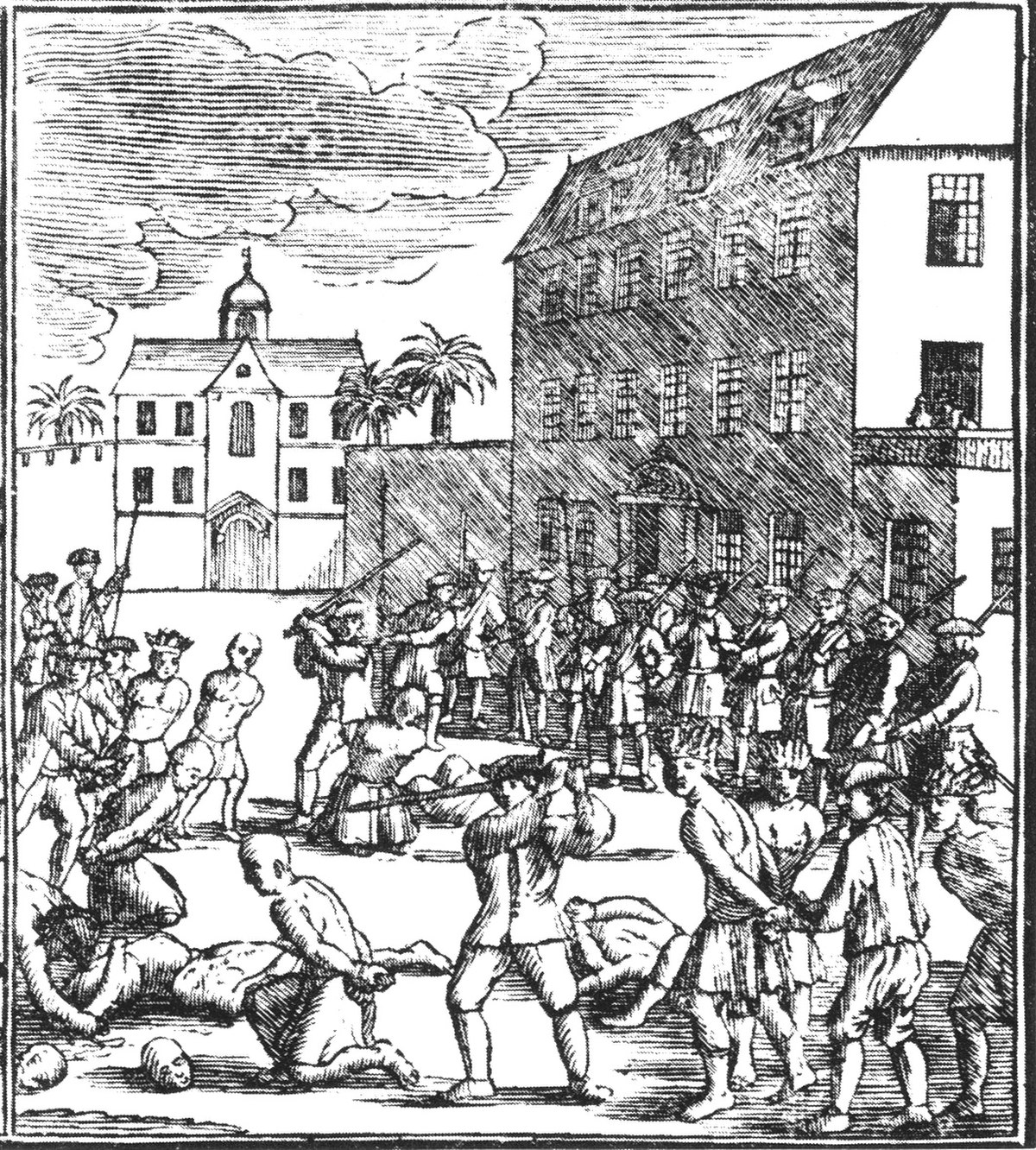
1740 Batavia Massacre
Jakarta, IndonesiaThe 1740 Batavia massacre was a massacre and pogrom in which European soldiers of the Dutch East India Company and Javanese collaborators killed ethnic Chinese residents of the port city of Batavia (present-day Jakarta) in the Dutch East Indies. The violence in the city lasted from 9 October 1740, until 22 October, with minor skirmishes outside the walls continuing late into November that year. Historians have estimated that at least 10,000 ethnic Chinese were massacred; just 600 to 3,000 are believed to have survived.
In September 1740, as unrest rose among the Chinese population, spurred by government repression and declining sugar prices, Governor-General Adriaan Valckenier declared that any uprising would be met with deadly force. On 7 October, hundreds of ethnic Chinese, many of them sugar mill workers, killed 50 Dutch soldiers, leading Dutch troops to confiscate all weapons from the Chinese populace and to place the Chinese under a curfew. Two days later, rumors of Chinese atrocities led other Batavian ethnic groups to burn Chinese houses along Besar River and Dutch soldiers to fire cannons at Chinese homes in revenge. The violence soon spread throughout Batavia, killing more Chinese. Although Valckenier declared an amnesty on 11 October, gangs of irregulars continued to hunt down and kill Chinese until 22 October, when the governor-general called more forcefully for a cessation of hostilities. Outside the city walls, clashes continued between Dutch troops and rioting sugar mill workers. After several weeks of minor skirmishes, Dutch-led troops assaulted Chinese strongholds in sugar mills throughout the area.
The following year, attacks on ethnic Chinese throughout Java sparked the two-year Java War that pitted ethnic Chinese and Javanese forces against Dutch troops. Valckenier was later recalled to the Netherlands and charged with crimes related to the massacre. The massacre figures heavily in Dutch literature, and is also cited as a possible etymology for the names of several areas in Jakarta.
